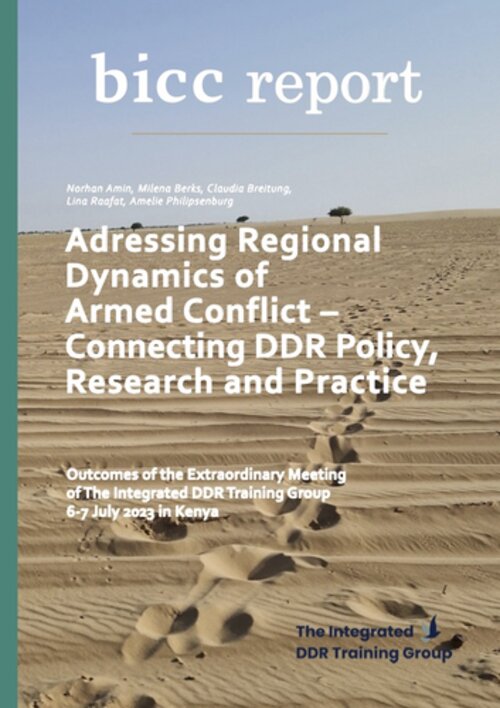Publications
Addressing Regional Dynamics of Armed Conflict - Connecting DDR Policy, Research and Practice
Outcomes of the Extraordinary Meeting of the Integrated DDR Training Group
Release Date
2024
Language
- English
Topics
- –
Many parts of the world have suffered from various forms of armed conflict in recent decades, including political rebellions and violent conflicts between herders and farmers tied to issues of resource scarcity and climate change. Conflicts and their aftermath are also often closely intertwined with organised crime andviolent extremism (McMullin, 2009). The illicit exploitation of natural resources, such as the mining of gold,diamonds, cobalt and other precious minerals has created economic opportunities for non-state armed groupsand other criminal actors in regions experiencing conflict. During and after armed conflict, state authoritytends to be weak, and the provision of basic services poor, particularly in vast and remote border areas. As aresult, border regions, where borders are often described as ‘porous’ are referred to as “ungoverned spaces”(Clunan & Trinkunas, 2012; Taylor, 2016) and hubs in the production, trafficking and consumption of illicitdrugs and other illegal commodities.
PDF-Download

Cite as
Document-Type
Report
Publisher
bicc
Place
Bonn



